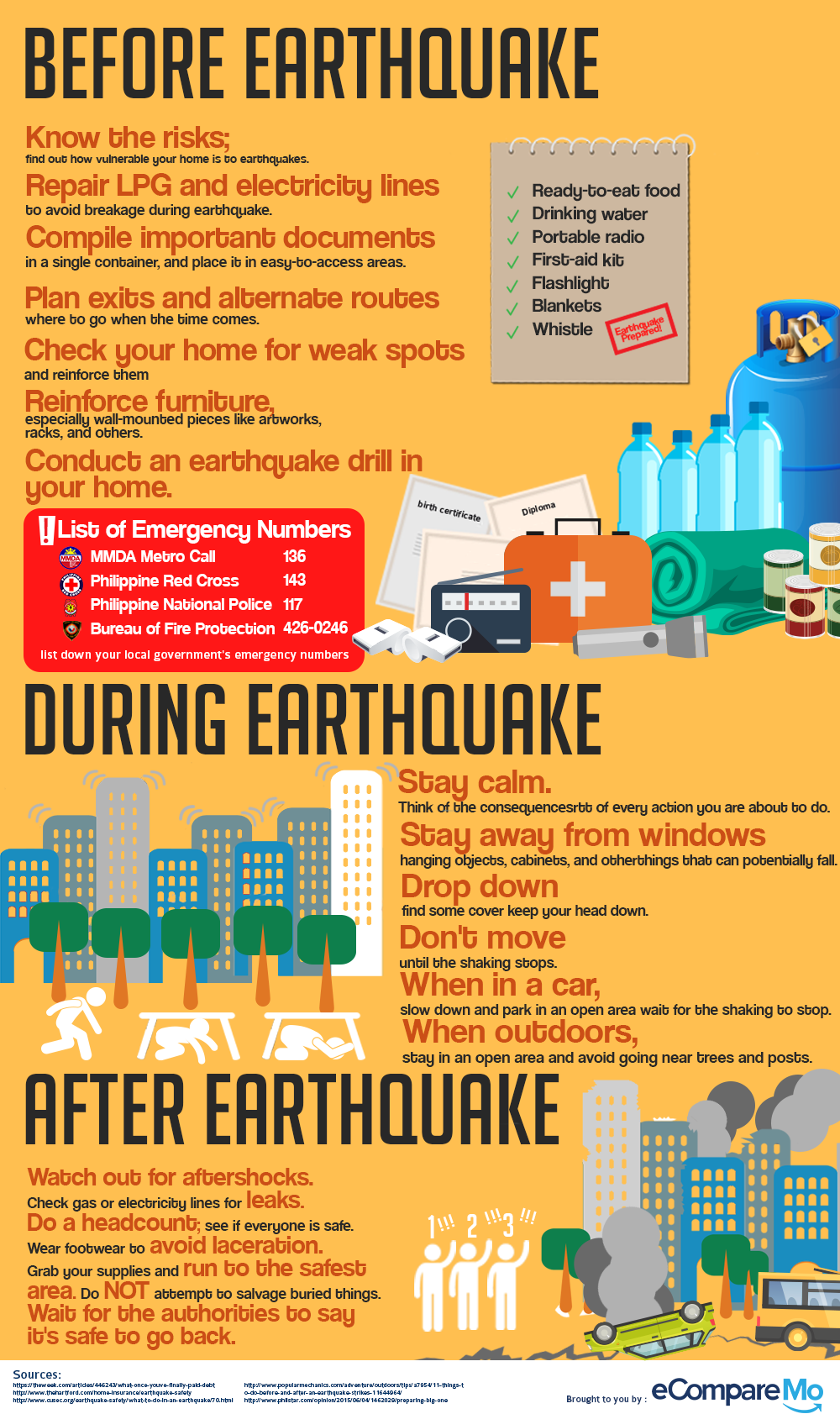INFOGRAPHIC: Are You Ready For The Big One?
2 min readMetro Manila, as well as surrounding areas, sits on top of two powder kegs: The East Valley and West Valley faults. According to the country’s leading seismologists, the movement of the said faults could leave the Metro Manila in ruins, destroying billions’ worth of property and taking millions of lives. Rich and poor, young and old—no one can be exempted from the wrath of earthquake. With that in mind, how can you prepare for the worst that is yet to come?

Before Earthquake
Earthquakes can strike anytime. Since no one can predict when earthquakes will strike, you need to do the following:
- Know the risks; find out how vulnerable your home is to earthquakes.
- Prepare your emergency kit that contains that following:
- Ready-to-eat food
- Drinking water
- Blankets
- Portable radio
- Flashlight
- First-aid kit
- Repair LPG and electricity lines to avoid breakage during earthquake.
- Compile important documents in a single, easy-to-access areas.
- Reinforce furniture, especially wall-mounted pieces like artworks, racks, and others.
- Check your home for weak spots and reinforce them.
- Scout for potential exits and alternate routes.
- Conduct an earthquake drill in your own home.
- List down emergency numbers:
- 136 MMDA Metro Call
- 143 Philippine National Red Cross
- 117 Philippine National Police
- 4260219/4263812/4260246 Bureau of Fire Protection
- Additionally, list down your local government’s emergency numbers
During Earthquake
Earthquakes are terrifying, and losing your focus for a second may spell crossing the line between life and death. Know these tips by the heart and you can save yourself as well as others:
- Stay calm. Think of the consequences of every action you are about to do.
- Stay away from windows, hanging objects, cabinets, and other things that can potentially fall.
- Drop down and find some cover; keep your head down.
- Don’t move until the shaking stops.
- When in a car, slow down and park in an open area and wait for the shaking to stop.
- When outdoors, stay in an open area and avoid going near trees and posts.
After Earthquake
The aftermath is a scary thing. You may never know the extent of the damage until the shaking stops. In any case, do the following:
- Be prepared for aftershocks. During strong earthquakes, aftershocks are pretty common.
- Check electricity and gas lines for leaks and shut them down immediately.
- Do a headcount; see if everyone is safe.
- Keep your footwear on; shattered glass can cause lacerations on your feet.
- Grab your supplies as well as documents and go to a safe area.
- Do not attempt to salvage anything; run and go to a safe area.
- Wait for the authorities to declare that the area is safe.
